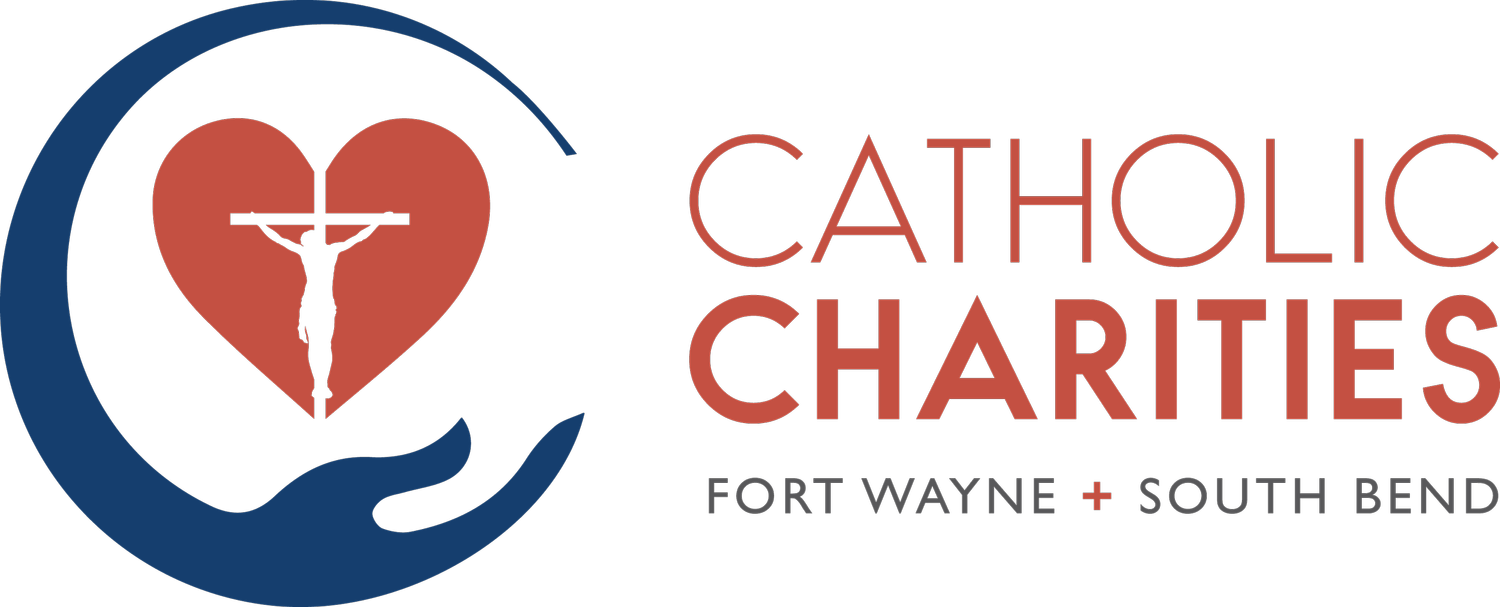Meet Duke, Our New Therapy Dog
UPDATE:
Duke has passed CGC-U, CGC-A, ATT, and is a registered therapy dog. His proof of registration can be found here under Registration Number 816735094.
Have you ever noticed that conversations with our furry friends are much easier than with another human? With nonjudgmental ears, therapy dogs were introduced over a decade ago to the medical field. Clients have found success in sharing their emotions with their counselor through the therapy dog, especially those who have experienced trauma.
Who is Duke?
When our Fort Wayne Counseling Supervisor, Karen, met Duke at an animal shelter, she could tell he knew something about trauma. A five-year-old standard poodle, Duke was surrendered to the shelter from a puppy mill. Blind in one eye, he showed signs of neglect and nervousness around humans. Little did Duke know, he would be the perfect dog to help other trauma survivors overcome their anxieties.
A year later, through training and positive reinforcement, Duke has overcome many of his trepidations and is a therapy dog in training. When he isn’t working, he enjoys bones, potato chips, ear scratches, and afternoon naps.
How are therapy dogs used?
A lot of people don’t know how to ask for their needs. Experience has shown having a therapy dog present can help clients say, “I need help.” When they ask to sit with Duke, they are actually expressing their needs to the counselor. They acknowledge that something is upsetting them internally by conveying the need of touch and comfort by the dog. For the counselor, a therapy dog serves as an extension of human connection that counselors cannot give clients, like hugging, and teaches the client to find comfort in different ways.
Where did the idea of having a therapy dog come from?
When Karen was in graduate school, she attended an animal-assisted training. There she learned how to use animals to aid clients’ self-esteem, acceptance, trauma, and comfort levels.
Karen held onto that dream for over a decade. With her work in schools, Karen felt it would be a great way to connect with shy students. Oftentimes, talking to an animal is less intimidating than to a counselor, so Duke often helps Karen quietly assess a client’s needs as they talk to him.
“What I love about dogs is they are just how they are. They can’t make excuses for themselves; they do what they need to do. They love unconditionally, no matter who you are or what has happened in your life. They don’t put expectations on clients and are role models for how living could be if we all just accept who we are. ”
Has Duke been trained?
After being welcomed into Karen’s family, Duke was enrolled in beginner obedience training. He was a super star and graduated top of his class. He was also deemed having the perfect temperament for a therapy dog. This spring, Duke is enrolled in a fundamentals 6-week obedience training course; afterward, Duke will need to pass the Canine Good Citizenship (CGC) test. Once he’s passed the CGC then he can be enrolled in therapy animal training, where he will learn how to remain calm in certain situations and be exposed to medical equipment. Karen will also receive specific handler training so that all involved have a positive experience.
What can clients expect during a session with Duke?
Duke has started to join counseling sessions with Karen. With a comforting and patient temperament, he does very well in one-on-one situations, and thrives around children.
“Once Duke sees me pull out his therapy vest, he gets very excited to go to work,” said Karen. “Duke becomes the happiest dog when we enter a school and the children come to say hello.”
Clients can expect their session to be the same as not having a therapy dog present: using different therapy exercises to achieve their goals. Duke is another tool Karen can use with a client for comfort and emotional regulation. Duke’s main purpose is to act as a touchstone or a calming presence when needed. Whether it is sitting on the floor with Duke or not wanting his assistance, clients can share their preference with Karen.

